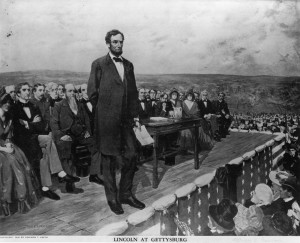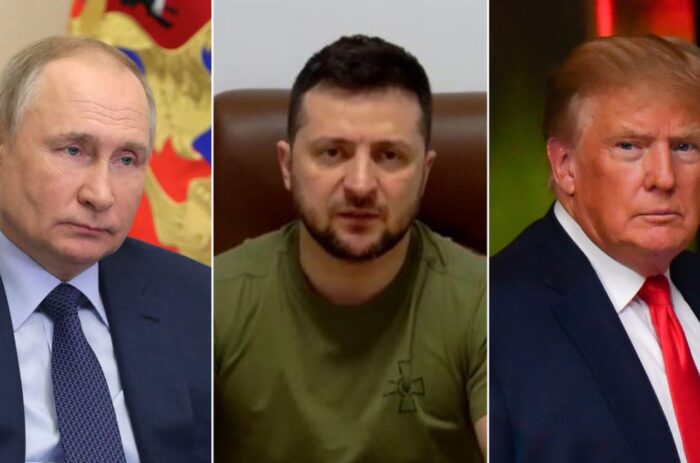redo Jump to...
print Print...
 (by Salena Zito, Pittsburgh Tribune-Review) GETTYSBURG – He almost was not asked to speak.
(by Salena Zito, Pittsburgh Tribune-Review) GETTYSBURG – He almost was not asked to speak.
In October 1863, President Abraham Lincoln received the same plain envelope that was sent to hundreds of people, requesting attendance at a dedication of the Soldiers’ National Cemetery here.
Col. Clark E. Carr, a confidante of several U.S. presidents and a member of the commission that organized the event, later admitted that commissioners scrambled to send a more personal invitation after Lincoln indicated he would attend.
Asking Lincoln to deliver a “few appropriate thoughts,” Carr said, was “an afterthought.”
You see, the dedication’s real headliner was Edward Everett. A former secretary of state, U.S. senator, Massachusetts governor and Harvard president whose nationwide tour helped to save Mount Vernon as a national shrine, Everett was considered the great orator of his time.
When Lincoln arrived, Gettysburg remained raw from the horrific battle that raged here for three days just five months earlier. More than 70,000 Confederate troops engaged 83,000 Federal troops around this crossroads town; the battle claimed more than 50,000 souls and 3,000 horses, and it changed the course of the war in the Union’s favor.
The bones of dead horses still were strewn over surrounding farmlands; vultures hovered over the landscape, and unburied coffins stood stacked in town.

November 19, 1863: Abraham Lincoln, the 16th President of the United States of America, making his famous ‘Gettysburg Address’ speech at the dedication of the Gettysburg National Cemetery during the American Civil War. Original Artwork: Painting by Fletcher C Ransom (Library Of Congress/Getty Images)
Lincoln had plenty of justifiable, honorable reasons to beg off from the ceremony: His ten-year-old son, Tad, lay sick with a fever in the White House; the war was going poorly out West; he was locked in a budget showdown with Congress, and his re-election bid looked grim against a general he fired for incompetence a year earlier.
Yet he came to a place underscored with death, tasked with making sense of it all with “a few appropriate thoughts” that gave meaning to the losses and the unbearable sacrifices.
On a brisk, cloudless November day, he stood on the temporary wooden stage after a two-hour speech by Everett who, by all accounts, enthralled the crowd with his pontificating skills.
“Four score and seven years ago,” he began in a…hard-to-hear voice before a crowd that had gathered from Washington, Baltimore, Philadelphia and elsewhere.
Three minutes and 270 words later, he sat down, convinced that he missed his mark.
He was wrong.
[On Tuesday, November 19th, the town of Gettysburg] will commemorate the 150th anniversary of Lincoln’s speech with a ceremony at the same Soldiers’ National Cemetery featuring the U.S. Marine Band, Pennsylvania Governor Tom Corbett, and a reading of the Gettysburg Address. One person who will not be among those honoring Lincoln is President Barack Obama.
One person who will not be among those honoring Lincoln is President Barack Obama.
The White House gave no reason why the president would not attend.
According to the National Park Service, Obama has never visited the battlefield as president.
In 2008, Barack Obama rolled out his presidential campaign in Springfield, Ill., where Lincoln announced his own presidential candidacy. Throughout that year’s campaign, Obama’s staff embraced similarities between the two men as part of his persona; he allowed them to encourage lofty comparisons – and, after he won the election, he recreated Lincoln’s 1861 train trip to Washington as part of his own inaugural spectacle.
He even took the oath of office on Lincoln’s Bible – twice.
Lincoln brought the country to a revival at an unlikely time with his address. He gave new meaning to the definition of sacrifice in service to the country, for the purpose of the preserving the country.
Lincoln was asked to speak [at Gettysburg] only as an afterthought. The request for Obama to speak has been sought for more than a year.
It would be an occasion for him to honor a crucial time in our past, to create a historical bridge to today.
His dismissal of the request shows a man so detached from the duty of history, from the men who served in the White House before him, that it is unspeakable in its audacity.
Ask almost any person in this historic town; even his most ardent supporters here are stunned.
Obama long ago veered away from any affinity he may have believed he had with Lincoln, which gives credibility to the criticism that his connection to Lincoln was always a political calculation rather than a true bond.
Published November 9, 2013 at The Pittsburgh Tribune-Review. Reprinted here November 14, 2013 for educational purposes only. Visit the website at triblive.com.
Questions
1. The purpose of an editorial/commentary is to explain, persuade, warn, criticize, entertain, praise or answer. What do you think is the purpose of Ms. Zito’s editorial? Explain your answer.
2. Is the 150th anniversary of Lincoln’s Gettysburg Address an important event for the current President of the United States to attend? Explain your answer.
3. Is Ms. Zito right in criticizing President Obama for declining to attend the commemoration (and without giving a reason), or does she go too far in her rebuke? Explain your answer.
Background
ABOUT LINCOLN’S GETTYSBURG ADDRESS (NOV. 19, 1863): (read Lincoln’s speech at: gettysburg.com/bog/ga.htm)
- When the armies marched away from Gettysburg they left behind a community in shambles and more than 51,000 killed, wounded, and missing. Wounded and dying were crowded into nearly every building. Most of the dead lay in hasty and inadequate graves; some had not been buried at all.
- This situation so distressed Pennsylvania’s Gov. Andrew Curtin that he commissioned a local attorney, David Wills, to purchase land for a proper burial ground for Union dead. Within four months of the battle, reinterment began on 17 acres that became Gettysburg National Cemetery.
- When the cemetery was dedicated on November 19, 1863, less than half the Union battle dead had been removed from their field graves. The principal speaker was the renowned orator, Edward Everett. As was common for the day, his detailed speech lasted for over two hours.
- Also on the program was a guest who had been invited to present “a few appropriate remarks” only as an afterthought. President Abraham Lincoln’s delivery of these remarks lasted only two minutes that day. The short length was in such contrast to the Everett allocution that the audience, stunned for a moment, barely reacted. Upon returning to his seat Lincoln remarked to a friend: “That speech won’t scour. It is a flat failure.” To the contrary, the Gettysburg Address has become known as one of the supreme masterpieces of eloquence in the English language. On November 20, Everett wrote Lincoln “I should be glad if I could flatter myself that I came as near to the central idea of the occasion in two hours as you did in two minutes.”
- The 272 words of the Gettysburg Address were formulated with great thought by Lincoln. He wrote the first draft in Washington shortly before November 18 and revised it at the home of David Wills in Gettysburg the night before the dedication.
- The speech transformed Gettysburg from a scene of carnage into a symbol, giving meaning to the sacrifice of the dead and inspiration to the living.
- Within a few years, however, the bodies of more than 3,500 Union soldiers killed in the battle had been reinterred in the cemetery. Following the war, the remains of 3,320 Confederate soldiers were removed from the battlefield to cemeteries in the South.
- Today the cemetery is the final resting place for over 6,000 honorably discharged servicemen and their dependents from the Civil War, Spanish-American War, World War I, World War II and the Vietnam War.
–Read Lincoln’s Gettysburg Address at gettysburg.com/bog/address.htm.

